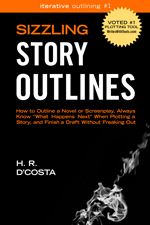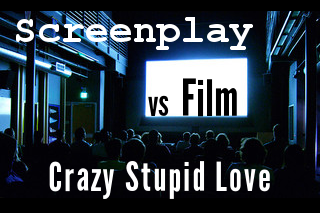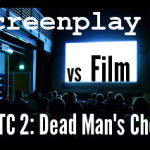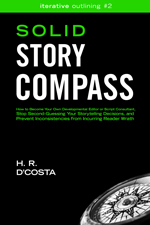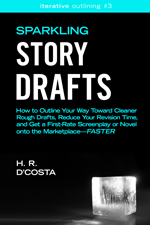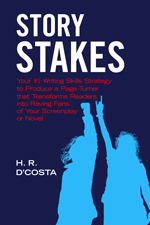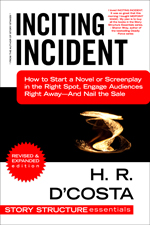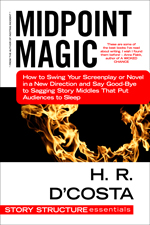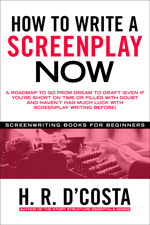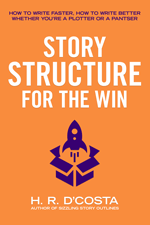Today’s Screenplay vs Film selection is Crazy Stupid Love, the comedy-dramedy starring Steve Carell, Ryan Gosling, Julianne Moore and Emma Stone. The script, written on spec, was by Dan Fogelman, and it sold for two million dollars.
That’s right. $2 million buckeroos.
You might be slightly stunned. I know I was. I thought Carell was crazy to attach himself to the script. Just look at the logline: a guy finds himself back in the dating game after getting blindsided by divorce. It’s not high concept. It’s kind of stupid, just a midlife crisis version of Hitch.
Of course, when I saw the movie, I loved it…and I became really curious about the script. Obviously, it had to be really good for Steve Carell to attach himself to the project, which in turn, led to its incredible selling price.
I found a rough draft from November 2009 and started comparing it to the movie. Considering Carell fell in love with the script, there were more changes between the screenplay and film than I had anticipated. Admittedly though, the killer climax and perfect execution of subplots and theme were all there, right from the get-go.
So…how do you improve on a script which sold for two million dollars? Let’s take a look:
Screenwriting Tip #1: Do the math
In the first few pages of Fogelman’s script, we learn that Cal Weaver is 44. His wife, Tracy (renamed Emily in the movie) is 42. Fine, fine, nothing out of the ordinary here, so let’s move on to another duo: Hannah and Jacob.
Hannah is 29. Jacob is 41. Yep, that’s right. In the screenplay, Jacob is only one year younger than Hannah’s mom, three years younger than her dad. That’s a little icky. It also creates another problem. If Hannah is 29, then Cal had Hannah when he was 15. Emily gave birth to Hannah when she was 13. Insert your favorite Appalachia joke here.
I suspect that Fogelman made Hannah 29 so that the difference in age between her and Jacob wouldn’t approach Skeevesville. But when Fogelman changed Hannah’s age with a few keystrokes, he may’ve forgotten that this change would also impact the age at which Cal and Tracy had Hannah.
It’s a really minor mistake, but it underscores a major point: every time you alter something in your script, you’re probably affecting something else. If you make a change, and it doesn’t affect anything else in your screenplay, honestly, your script probably isn’t that good in the first place. A good second act is a tight chain of cause and effect. If you change one of the causes, you change its effect (and vice versa). This concept also applies to elements rooted in character, like age.
When you make last minute tweaks to your script, think carefully about how those changes might affect the internal consistency and logic of your screenplay. It’s probably a good idea to keep a timeline of all the major events in your characters’ lives, paying special focus to how old each one would be when major events happened to everyone else. That’s the easiest way to avoid having a mom give birth to her daughter when she was barely out of junior high.
You may think I’m being incredibly picky here–after all, this script still sold for two million dollars. Apparently, Carell didn’t mind being a dad at 15. But your last name isn’t Fogelman. Actors, producers, and agents aren’t going to give you the same leeway they do to the guy who wrote Cars.
Screenwriting Tip #2: A-list actresses need screentime
If you want to write about a couple in the middle of a divorce who are trying to rediscover their marriage, it stands to reason that you’d want great actors for both the husband and the wife roles. Cal may be the main character driving the events of Crazy Stupid Love, but, as his object of affection, Emily is equally as important.
In Fogelman’s November 2009 draft, Emily’s character disappears for 24 pages. 24 pages! You’re not going to get an A-list actress to star as Emily, certainly not one on par with Julianne Moore, if Emily barely has any scenes. If you want to attract major talent to play your characters, than make sure you give those characters ample time to shine onscreen. (Read screenwriting tip #3 from the Devil Wears Prada for another example of how to write actorbait.)
Even when Emily’s character is onscreen, she gets forgotten. Take this scene–Cal and Emily have returned from their dinner, where Emily just blindsided Cal with her desire to get divorced. At the door, they find Jessica, their babysitter, and Robbie, their precocious thirteen year old son.
JESSICA
Hi, Mr. and Mrs. Weaver. How was dinner…
(noticing)
Oh my God, Mr. Weaver, you’re bleeding. Why are you bleeding?
CAL
Mrs. Weaver told me she wants a divorce so I jumped out of the car. Hope the kids behaved. Come on, I’ll drive you home.
Robbie steps into frame.
ROBBIE
Dad?
CAL
S***.
(then)
I didn’t know you were here.
ROBBIE
You’re getting divorced?
CAL
Yes.
TRACY
Cal!
ROBBIE
And you jumped out of a car?
CAL
A moving car, yes.
TRACY
Cal!
CAL
(to Robbie)
I’m sorry you found out this way.
ROBBIE
I’m sorry you jumped out of a car.
CAL
Thanks.
Emily disappears in this scene–she only has two words of dialogue (Cal’s name), which don’t contribute to the scene at all. Contrast this scene with the way it played out in the movie. A rather flustered Emily asks Jessica if her daughter, Molly, gave Jessica a hard time with her broccoli, while Robbie focuses on extracting information from Cal.
This was so much better. Not only did Emily have lines, drawing our attention to her as well as to Cal, she was operating in classic avoidance mode, lending more authenticity to her character.
Later, in another scene which isn’t in the screenplay, Emily confesses to Cal that she might be having a midlife crisis. Now, it’s his turn to practice avoidance tactics. Instead of answering any of her questions, his responses all focus on how to operate their sprinkler system.
It’s a beautiful scene, with great cross-purpose dialogue, which also sets up the recurring motif of the garden. Even better, we still have Emily in the picture, on the screen, without disappearing for a quarter of the movie! We have a little actorbait!
This wasn’t the only scene featuring Emily that was in the movie, but not in the screenplay. The date with David Lindhagen, and Emily’s subsequent return home where Jessica refuses her “slutty money” wasn’t in the script. Neither was one of my favorite scenes, the one where Emily suddenly calls Cal, who, unbeknownst to her, is tending their backyard garden.
I’ll go into this point a little more in screenwriting tip #3, but it bears mentioning now: giving screentime to Emily’s character is not just important to attract A-list talent like Julianne Moore. It’s also important because you have to show why Emily’s worth fighting for. You can’t do that if she doesn’t have any scenes!
Screenwriting Tip #3: the hero has to be worthy of the girl
I’m going to move onto Hannah and Jacob’s relationship for a little bit. Jacob is king of the players. He knows how to score with women, and he does so unapologetically. This allows Fogelman to have some fun with his character. But at the end of the day, if Hannah is to fall in love with Jacob, he has to be worthy of her love. In other words, Jacob can be a reprobate at the beginning of the movie, but he has to be a redeemable one.
In the draft that I read, Jacob’s attitude was off-putting to the point where he seemed almost irredeemable, at least to me. I’m not sure I would want to see him together with Hannah, even if he did try to change his spots. For example, he tries to pick her up like this:
Jacob sits down at their table, uninvited.
JACOB
I find you incredibly sexy. It’s a fact, not a cheesy pick-up line. There are many attractive women in this bar – including your friend here – and I’ve been unable to take my eyes off you, only you, for the past two hours. Again: not a cheesy pick-up line, just a fact.
(then)
Answer this quickly, without thinking about your answer: do you find me attractive?
Hannah doesn’t flinch.
HANNAH
I don’t.
JACOB
Yes you do.
LIZ
Yes, she does.
JACOB
I’m an accomplished lover. If you come home with me, I am confident I’ll give you multiple orgasms.
HANNAH
You’ve got to be kiddi–
JACOB
We’ll make love and it will be amazing. You’ll laugh afterwards and say “I never do this kind of thing.” And then you’ll do it again.
HANNAH
Is that so?
JACOB
It is. So now I’m going to ask if I can buy you another drink. If you say yes, we’ll have one more cocktail each – just enough to start losing inhibitions, not enough to get sloppy, after all: I promised you orgasms.
LIZ
Multiple ones.
JACOB
That’s right. So, here we go, Hannah: can I buy you a drink?
Hannah and Liz share a look.
HANNAH
What do you expect me to say to that?
JACOB
Margarita, rocks, salt.
HANNAH
Wow.
She STANDS, grabs her coat and Liz’s hand.
HANNAH (CONT’D)
Okay, time to go.
Liz doesn’t move.
Jacob’s lines in the movie had the same intent, but they were less crass, less smarmy, less “in your face,” as you can see from this clip:
Jacob’s lines were also modified in the scene where he decides to lend his services to Cal:
JACOB
I want to help you, Cal. I don’t know why. Maybe I’m just bored. Maybe all my friends have abandoned me for wives and children and labradoodle puppies, who cares why? Why doesn’t matter. The point is, you’ve got a good face, and a good head of hair, and I’m bored as hell and need a project. So if you want, I’m going to help you rediscover your manhood. Do you remember exactly when it was that you lost it?
Cal shakes “no.”
JACOB (CONT’D)
Doesn’t matter, we’ll find it. And when we do, when I’m through with you, that wife of yours is going to rue the day she decided to give up on you too early. That’s my offer. What do you say?
When Jacob decides to make Cal “his project,” it’s not cute, the way Cher’s makeover of Tai was in Clueless. It’s callous. Again, he comes across as too much of a jerk.
In the movie, when Cal asks Jacob, “why are you helping me?” Jacob says, “maybe you remind me of somebody else.” (Later on, we’ll see that Cal reminds Jacob of Jacob’s dad, a neat little twist which gives more dimensionality to Jacob’s character.)
Maybe you think that Jacob’s dialogue in the script isn’t that crass or callous. Maybe you think it works for his character. Then why were the lines changed?
I’d argue that the changes made Jacob less skeevy, in turn making him more redeemable, and therefore more worthy of a catch like Hannah.
This concept holds true for women too–the heroine has to be worthy of the hero. (If she isn’t, then you get box office results on par with those of Something Borrowed.)
In screenwriting tip #2, I mentioned that Emily doesn’t have a lot of screentime. Because she’s barely a part of the story, it’s difficult to understand why Cal would keep on fighting for this seemingly flighty woman who doesn’t know her own mind.
With the scenes which were added to the movie, we see that she’s a vulnerable and smart woman who didn’t approach the decision to divorce lightly. We see why Cal vows never to stop fighting for her, instead of cutting his losses, and marrying somebody new.
Screenwriting Tip #4: Show, don’t tell
Yes, this screenwriting tip appears yet again–even in a script which sold for two million dollars. This example is particularly good because it will help you appreciate how much more you can accomplish by showing something rather than telling it.
In the screenplay version of Crazy Stupid Love, Cal’s friend Bernie has abandoned him. This information was conveyed like this on page 48:
INT. SUBURBAN KITCHEN – EVENING
A late 40’s couple – BERNIE and CLAIR (we haven’t met them yet) sit at the kitchen table, eating in silence. Clair is dainty, bubbly little woman. Bernie is the size of an oak tree – he speaks in deep grunts.
Claire puts her fork down.
CLAIRE
Oh, I almost forgot – heard some good gossip at the nail salon this morning.
BERNIE
For God’s sake, Claire.
CLAIRE
(sing-songy)
It’s about your old pal, Cal Weaver.
BERNIE
Leave the poor bastard alone, would you? You told me I had to stop being friends with him after the split, I did. We don’t have to dance on his grave.
VOICE (O.S.)
What did you hear about Mr. Weaver, Mom?
In the movie, rather than have Bernie tell us that he “broke up” with Cal, we see it. It’s not much of scene, only 45 seconds long, but it’s such a wonderful grace note which accomplished so many objectives.
For one thing, it hits home that Cal has lost more than just his wife and his home. The divorce will cost him his best friend too, a loss which almost feels palpable.
It shows us another reflection of the movie’s theme, only Bernie, unlike the other characters, doesn’t “fight” for Cal. Bernie also plays a key role in the climax, so it was good to set up who he is early on, the way the movie did, instead of waiting almost until page 50, the way the script did. Finally, the movie scored a nice product placement deal with Macy’s.
One little scene can accomplish so much–if you show, not tell.
Go through your latest script. Search for lines of telling, like Bernie’s “You told me I had to stop being friends with him after the split, I did.” Now try to flesh out those lines of dialogue into a full-fledged scene, and see what you discover.
You may not ever end up using this scene, especially if your script is too long, but you just might find a nugget of screenwriting gold.
Screenwriting Tip #5: Minimize phone calls
Like the rule about showing, not telling, this one frequently pops up…in Bridesmaids, Taken, and One for the Money, to name a few. I don’t know why everyone is obsessed with communicating messages through phone calls–there has got to be a better way, people! Your mission, should you choose to accept it, is to find that way.
I’m not saying all phone calls are bad. But for the most part, screenwriters use them as a crutch because they can’t figure out a way to get two characters together to have their conversation in person or because they can’t think of another way to convey crucial information. Try, baby, try.
There were two unnecessary phone calls in the Crazy Stupid Love script. One was a call from Cal to Hannah:
INT. CAL’S CORPORATE APARTMENT – NEXT DAY (AFTERNOON)
Robbie sits on the couch, completely dejected. His little sister sits next to him, watching “High School Musical” as always.
In the adjoining kitchen, Cal is on the phone.
CAL
(into phone)
Hey, Nanna! I know, it’s been forever. Have you been getting out at all? I’ll bring you some of that deli you like one night, okay? The kids? They’re fine.
(to other room)
Kids, say hi to Nanna.
ROBBIE AND MOLLY
Hi Nanna!
CAL
(then, shifting tone)
No, I’m hanging in. You did? How did she seem? Yeah, no, I’m gonna see her tomorrow night for the first time in a while. It will be weird, yes.
(then)
Oh, I’ve been keeping busy. Made a new buddy, I’ve been spending time with him. Of course I miss her. You don’t know how much I miss…
His voice cracks. He turns, sees Robbie staring. He heads into the bathroom with the phone, closes the door.
Robbie SIGHS, turns back to the TV.
I’m 90% sure this call was eliminated from the movie. If it’s still in there, let me know in the comments. Even if wasn’t cut from the movie, it easily could be, and the movie wouldn’t suffer as a result.
Cal’s already referred to Nanna a bunch of times in the script; we don’t need a phone call added to the setup. It just wastes valuable screenplay real estate.
There was another phone call too, which got nixed in the movie. It’s Robbie, telling off David Lindhagen (his last name differs in the script):
INT. DAVID JACOBOWITZ’S HOUSE – MEANWHILE
David Jacobowitz ENTERS his house, throws his keys on the counter.
He goes to his ANSWERING MACHINE. It’s beeping.
MACHINE
One new message.
We hear Robbie’s VOICE.
ROBBIE (O.S.)
Hey, David Jacobowitz, Robbie Weaver here. Tracy Weaver’s son. Just wanted to let you know: I’m calling from my Dad’s cell phone, at my Dad’s house, where shortly, my Mom is going to be arriving so my dad can pull out the stops and win back her heart. So basically: goodbye David. It was nice knowing you, stop sending flowers, stop writing notes, have a nice life. She’s not your soulmate. Later.
BEEP.
David stands there for a moment, crestfallen. After a beat, he picks up his phone.
DAVID
Hi, I need an address. Cal Weaver…River Vale, I think.
While this act is perfectly in keeping with Robbie’s character, he’s one precocious kid, again it’s not necessary. Imagine this scene onscreen. It’s just Lindhagen staring at his answering machine. Boring, (even if Kevin Bacon has retained his offbeat good looks).
In the movie, David shows up at Emily’s house, at the crucial climax scene, with her sweater clutched in his hands. Apparently, she left it in his car during their date.
That’s it. So simple, so easy, so elegant. No phone call.
Now, as I said, I’m not completely anti-phone call. There are times they’re absolutely necessary–and there are times they can work very well. Crazy Stupid Love has examples of the good kind too.
When Cal totally bungles everything up, he calls his friend Jacob for advice, but Jacob doesn’t answer. He’s too busy falling in love with Hannah to take care of Cal. This phone call works because learning that Jacob has finally lost his heart is immensely satisfying.
After a string of unanswered phone calls, Cal finally makes contact with Jacob, who announces he’s meeting Hannah’s parents. This phone call is critical. It’s important to set up that Jacob’s serious about Hannah and for Cal to know it, because that makes the climactic scene at the end a hundred times more intense.
To keep the suspense going before the big reveal that Cal is in fact Hannah’s dad, Jacob and Cal can’t have their conversation in person. They have to talk on the phone. Can anyone think of a different way?
Finally, my favorite phone call scene is the one between Cal tending the garden, while Emily is inside their house, pretending to need help with fixing the water heater. This was a gorgeous scene. I’ve raved about it in screenwriting tips #2 and #3, so clearly I’m not 100% against phone calls!
Why does this phone call scene work so well? Simple. Irony. Emily’s pretending to need help just to hear Cal’s voice–even after his major screw-up with Robbie’s teacher–and he knows it. It speaks volumes about the current state of their relationship.
Another phone call which worked well because of irony (of a different sort), is a scene in RED where Karl Urban’s character, Cooper, chats to his family acting like the perfect suburban dad. The only thing is, he makes this cozy little chat while in the middle of assassinating someone. Very well played, Hoeber brothers!
Screenwriting Tip #6: Show the stakes
Stakes are easy to show in a thriller like Mission Impossible Ghost Protocol. Either the hero wins, or the world is destroyed. Showing the stakes in a comedy-dramedy about relationships is a lot harder. It’s difficult to convey what the hero has to lose while maintaining a lighthearted tone.
In the movie version of Crazy Stupid Love, there’s a scene with Emily and David out on their date which clearly shows what’s exactly on the line if Cal doesn’t get his act together in time. Although you want David to act like a jerk, so Emily will get back with Cal, David doesn’t. He’s funny, he’s nice, he’s smart. He’s serious competition.
If Cal doesn’t win back Emily soon, he might very well lose his soulmate to a guy it’ll be difficult to compete with. Those are the stakes. And if you place any kind of premium on finding a soulmate, they’re serious ones too.
You might argue, David Lindhagen doesn’t have a chance. When Emily arrives home after their date, she doesn’t put his lovely bouquet of lilies into a vase. Not this time…but what about the next? Lindhagen can wear Emily’s defenses down with kindness, and then, it’ll be Cal who might not stand a chance.
In a romantic comedy, sometimes the best way to show the stakes is to focus on the threat.
Final thoughts
These are just a few of the screenwriting tips I learned by comparing the Crazy Stupid Love screenplay to its film. I’ll post the rest of the screenplay writing tips I learned tomorrow. I’ll also post a list of the movie’s plot points, which should be a really good reference if you’re trying to learn how to weave subplots together.
Crazy Stupid Love doesn’t have much of a hook. But, despite my nitpicking, it has a helluva lot of everything else: a kickbutt climax, solid subplots, reflections on theme, humor…and heart.
In other words, when it comes to screenwriting basics, Dan Fogelman’s at the top of his game. And that’s why he can sell his spec screenplays for two million dollars.
Watching a blank screen (with modifications) by Kenneth Lu
